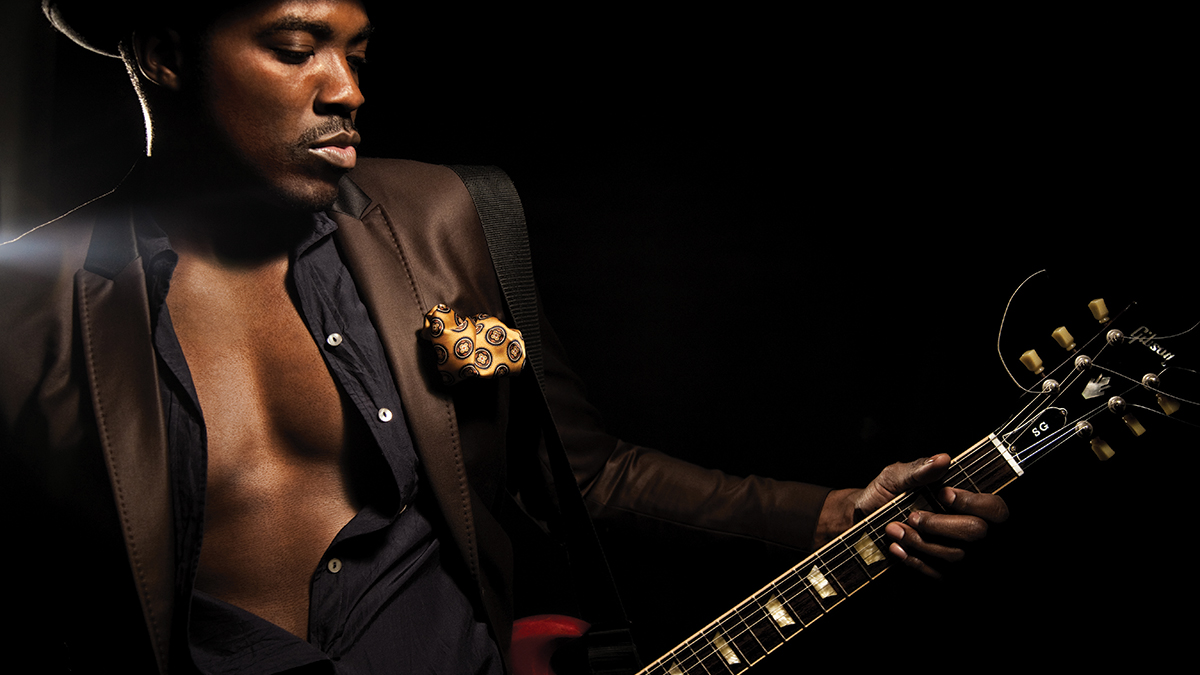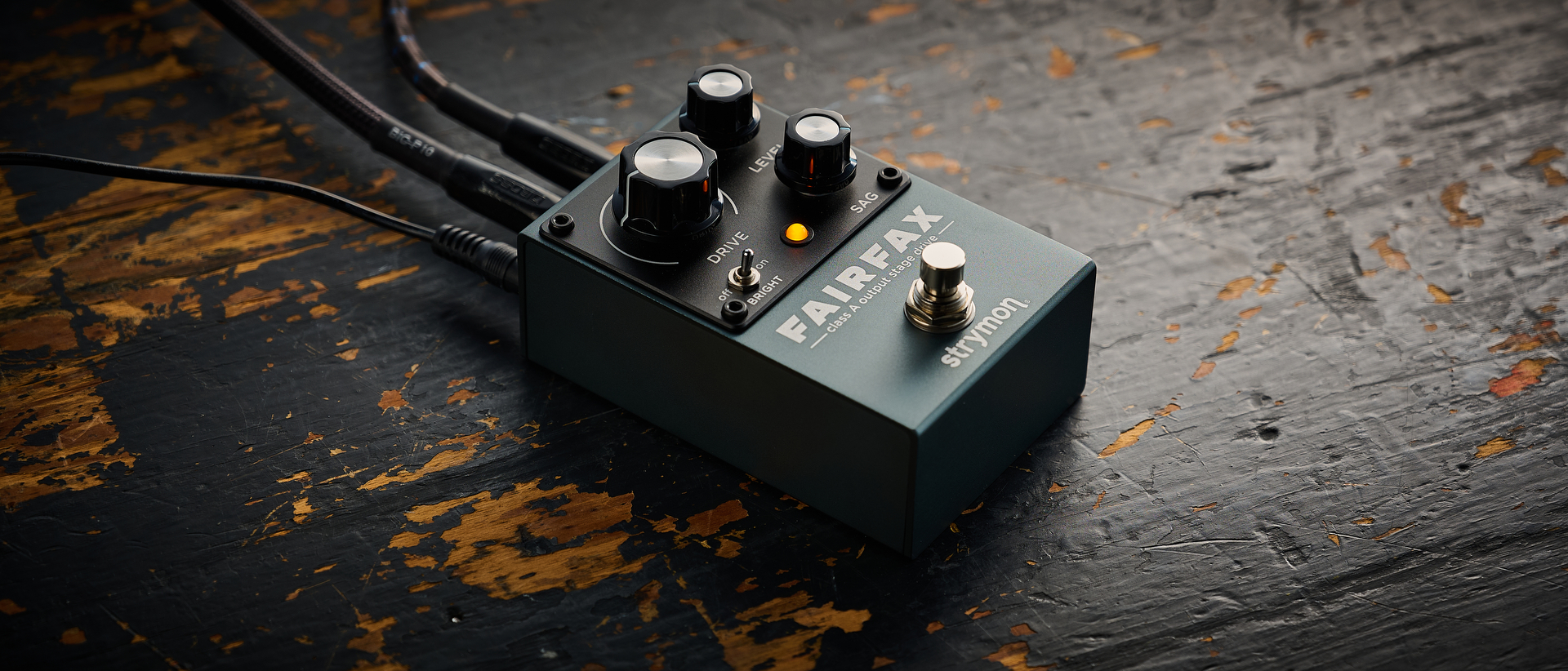“Most stakeholders in the blues world are killing it instead of keeping it alive”: Athlete turned guitarist Emanuel Casablanca approaches guitar with a competitive mindset – and he’s on a mission to stop the blues all sounding the same
Strung Out on Thrills was hard to make and hard to write – every track was challenging. But Emanuel Casablanca's album throws down the gauntlet to blues guitar, presenting a new path forward

All the latest guitar news, interviews, lessons, reviews, deals and more, direct to your inbox!
You are now subscribed
Your newsletter sign-up was successful
Brooklyn, New York, has long been associated with indie, punk and jazz, but for the most part, blues has been overlooked. Thankfully, Brooklyn native Emanuel Casablanca didn’t get the memo. In fact, he’s doing everything he can to move the blues needle into the red.
Before he made music his life’s work, Casablanca wasn’t focused on the blues at all. “I was a competitive basketball player since I was around 10,” he says. “I played in school and summer leagues, so it occupied my life all through high school, prep school and the beginning of college. I never even had a Christmas break until I quit playing basketball.”
Emanuel’s love for music and guitar won out, leading him down his current path. But unlike some, Emanuel doesn’t feel that the blues needs saving, nor is he beholden to its past, a mindset that probably comes from his origin story. “I chose guitar over basketball and started going to the music halls on my days off,” he says. “That’s when I learned there were two things I always wanted to do: play the guitar and skateboard.
“When I turned 22, I had a little over $100 in my bank account and flipped a coin to decide what I should buy with the money. Heads was a guitar, tails was a skateboard. It landed on heads, and I went on Craigslist and found a used acoustic for $50. I taught myself as much as possible.”
These days, Emanuel can frequently be found gigging around Brooklyn. He’s taken some flak for his original take on the blues, but in his mind, that’s better than being boring.
“When it comes to creating art, nothing is off limits,” he says. “I hate to sound like a purist, but I believe music is the opportunity for you to express yourself however you feel fit. If people don’t like overblown solos, don’t listen to tracks with overblown solos. At the end of the day, I think for musicians, and definitely for me, it’s about creating music in the way that moves me and listeners.”
Did you grow up in a musical household?
All the latest guitar news, interviews, lessons, reviews, deals and more, direct to your inbox!
“My mother was a music teacher. She started me on violin when I was four. I remember being five or six and asking her if I could get a ‘rock guitar’. She said she wanted me to learn a ‘real instrument’ first. She never got me that guitar, no matter how many times I asked; years later, I realized it would be up to me to get my own guitar.”
Where did the attraction to the blues come from?
“As cliché as it sounds, I didn’t choose the blues; the blues chose me. I was a late bloomer on the guitar. I got a basketball scholarship to go to college and quit playing my sophomore year, losing my scholarship. From there, I couldn’t afford to go to that school any longer, so I transferred to Morehouse College in Atlanta for the first time in my academic life. I had no obligations other than attending class and getting good grades.”
Songs make the most sense when developed and created on the guitar. I am not able to create as well as I do on any other instrument
Once the guitar entered the picture, what made it stick?
“I love songs and poetry, and more than loving songs, I love to write them. Songs make the most sense when developed and created on the guitar. I am not able to create as well as I do on any other instrument. Secondly, I am a competitor. As a former athlete, competition is in my bones, and I always want to be the best I can be.
“My fiancée gets frustrated with me sometimes because I’ll see someone playing the guitar who does something advanced. I will get up and grab my guitar, and I won’t get back to that quality time until I can play whatever I just heard. “
Did merging your love for blues and guitar come naturally?
“I remember walking through my neighborhood one summer in Bedstuy [Bedford–Stuyvesant, Brooklyn] and seeing an older man on his stoop playing the blues. I just wanted to play guitar; I didn’t care what style; I knew I wanted to be good.
“He told me to come over every day that summer after he got off work, and he could teach me all he knew. Given that my guitar playing was rooted in the blues, no matter what bands I was playing with or my other musical interests, it all came back to the blues.”
How do you view blues music in the modern era?
“There’s an undeniable marketing tactic to take it to the mainstream. Jack White and John Mayer are playing the blues; they just aren’t calling it the blues. I do, however, feel like the blues community has its part to play in the case of whether it will be ‘big enough’ or not. In all the blues festivals I’ve attended and played, most of the acts, albeit great, sounded the same.”
Is the idea that the blues need to be “kept alive” false?
“I went to Memphis years ago to see the Blues Challenge. Although I found all the talent amazing, whether it was their musicianship, performance or something else, all the acts the judges wanted to advance sounded alike. The lack of open-mindedness in the blues world can and will hold it back.
“There’s the blues world tagline, ‘Keeping the blues alive.’ But most stakeholders in the blues world are killing it instead of keeping it alive. There is no life without evolution, and most other forms of roots music you can name have evolved. But things are incredibly antiquated, and many stakeholders aren’t doing their part to bring the genre forward.”
It took me 10 months to record this album. I spent two months tracking because of the studio’s schedule, and then when the engineer exported the files, they were all corrupt
Your record, Strung Out on Thrills, just came out in February. Tell me about it.
“I don’t sit down and write a record; I have songs from as far back as 2012 that have yet to be released. I’m more than a guitarist; I am a songwriter, and I have many songs in my catalog that still need to be recorded. I will write 30 to 40 songs a month, and although only five of the 40 may be good, some of the remaining tracks can be worked with, so I’m constantly working.”
So the record is a combination of unreleased and new material?
“Yes. But it’s funny; the caveat to my new writing is that I sometimes have writer’s block, where I go six months without writing a thing. So, Strung Out on Thrills stemmed from my older and newer songs, and they could make one good cohesive piece of artwork.”
Did the disjointed nature of that prove to be a challenge when tracking guitars?
“All the tracks were challenging. It took me 10 months to record this album. I spent two months tracking because of the studio’s schedule, and then when the engineer exported the files, they were all corrupt. He was no longer working for the studio, and they couldn’t find any files, so I had to start from scratch. When starting from scratch, I began filming a movie at the same time, so I only had a little time to record.”
My riffs are like my babies. I have a library of riffs, and I always try to make them better than the one before
Do you have a specific process when it comes to writing riffs?
“Riffs are my favorite. Most of the songs in my catalog are riff-heavy. I would say that on this album, Strung Out on Thrills is my favorite riff. It’s simple but impactful, and that’s what I go for. I like the idea of less being more. My riffs are like my babies. I have a library of riffs, and I always try to make them better than the one before.”
How about solos? Do you have a favorite from Strung Out on Thrills?
“My favorite solo is Laurence Henderson’s on Visceral. He is a friend of mine based in the UK, and I initially just wanted him to do the fills as I had already laid down a solo, but when he sent me the files back, he had played over the whole song, and I was like, ‘Holy shit!’ We ended up scrapping my solo and keeping his. But overall, I don’t write solos beforehand. I improvise all of them.”
What does your rig look like these days?
“I have had a lot of gear over the years, but I’m a Strat guy through and through. I have a bunch of Fender Mod Shop Strats, but my main one is Daphne Blue with a maple modern C neck, oversized headstock and a rosewood fingerboard. I have used the same amp, a [Fender] Twin Reverb, for years. And I’ve been using Fender Hammertone pedals; I’m loyal to Fender, and they’ve never let me down.”
What are your goals, and how will you achieve them?
“In the short and long term, I’d like to remain an ambassador for the blues. I’m working on two new films that I hope shed more light on the blues, and I’m working to bring the first blues festival to Claverack, New York, in 2025. It’s all been taxing, but I have a strong team to support and accomplish it.”
- Strung Out on Thrills is out now via Vinyl Recording Group.
Andrew Daly is an iced-coffee-addicted, oddball Telecaster-playing, alfredo pasta-loving journalist from Long Island, NY, who, in addition to being a contributing writer for Guitar World, scribes for Bass Player, Guitar Player, Guitarist, and MusicRadar. Andrew has interviewed favorites like Ace Frehley, Johnny Marr, Vito Bratta, Bruce Kulick, Joe Perry, Brad Whitford, Tom Morello, Rich Robinson, and Paul Stanley, while his all-time favorite (rhythm player), Keith Richards, continues to elude him.







